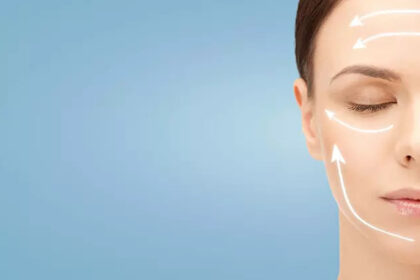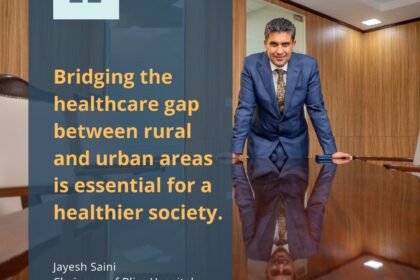Dubai has long been known for its fast-paced lifestyle, where convenience and innovation go hand in hand. Over the last few years, this culture of efficiency has made its way into healthcare. On-demand health services—once considered a luxury—have now become a regular part of daily life for many residents. From doctor consultations via video calls to lab tests taken in the comfort of one’s home, Dubai is witnessing a quiet but powerful shift in how people access and experience healthcare.
The Rise of On-Demand Healthcare
A decade ago, most people in Dubai relied exclusively on traditional clinics or hospitals for medical care. That meant taking time off work, sitting in waiting rooms, and scheduling appointments days or weeks in advance. Today, those same services can come directly to a person’s doorstep or screen.
The shift began with the city’s growing focus on digital transformation. As Dubai pushed to integrate smart services across all sectors, healthcare providers quickly followed suit. Apps and online platforms began offering home visits, virtual consultations, and even medication delivery. What started as a convenience soon became a necessity—especially during the COVID-19 pandemic, when minimizing physical contact was essential.
During that time, residents discovered how practical and reliable these services could be. Getting a PCR at home Dubai became the norm, saving people from long testing queues and reducing exposure risks. The success of these services proved that on-demand healthcare wasn’t just a temporary solution; it was the future.
Convenience Meets Quality
The biggest reason behind the surge in on-demand healthcare is convenience. Dubai residents lead busy lives, and time is a valuable commodity. Whether it’s a corporate executive with back-to-back meetings or a parent juggling work and childcare, few have the flexibility to spend hours at a clinic.
On-demand healthcare eliminates that problem. Instead of fitting health appointments into an already full schedule, patients can choose a time and place that works best for them. Many services operate 24/7, allowing users to book appointments late at night or early in the morning—times when traditional clinics are closed.
However, convenience alone wouldn’t have been enough to make this shift sustainable. People expect high-quality care, and Dubai’s healthcare system has delivered. Licensed professionals, certified labs, and approved service providers ensure that patients receive safe and reliable treatment. Many on-demand services in Dubai even partner with top hospitals and diagnostic centers, maintaining the same medical standards as traditional healthcare facilities.
Technology at the Core
Behind the success of on-demand healthcare is a robust technological backbone. Mobile apps and online portals have made the process simple and intuitive. With just a few taps, users can book a nurse visit, order medications, or schedule lab tests. These systems also store patient records securely, giving both patients and healthcare providers quick access to medical history and results.
Artificial intelligence (AI) and automation are also playing a growing role. Some platforms use AI-powered chatbots for basic medical inquiries, appointment scheduling, and triage support. Telemedicine consultations allow doctors to assess symptoms remotely, offer medical advice, and issue prescriptions—all without requiring a clinic visit.
In Dubai, where residents are comfortable with digital solutions in every part of life—from banking to transportation—it’s only natural that healthcare would evolve in the same direction.
A Culture of Wellness and Prevention
Another factor driving on-demand healthcare in Dubai is a cultural shift toward wellness and prevention. People are increasingly conscious of maintaining their health rather than waiting for problems to arise. The availability of home-based health services has made preventive care easier and more consistent.
For example, residents can now schedule regular blood tests or health screenings from home. Fitness-conscious individuals use at-home nutrition consultations and physiotherapy sessions to stay in peak condition. Elderly patients or those with chronic illnesses benefit from routine nurse visits and remote monitoring, ensuring they receive ongoing care without leaving their homes.
This emphasis on prevention aligns perfectly with Dubai’s vision of becoming one of the world’s healthiest cities. The government’s initiatives promoting active lifestyles, combined with easy access to medical services, create an environment where maintaining good health is convenient and achievable.
The Role of Insurance and Regulation
For on-demand health services to thrive, strong regulation and insurance coverage are essential. Dubai’s healthcare authorities have taken deliberate steps to ensure that these services meet strict quality and safety standards. The Dubai Health Authority (DHA) oversees licensing, training, and compliance for providers offering telehealth and home care.
Insurance companies have also adapted to this new model. Many now cover telemedicine and home healthcare services, recognizing their role in reducing hospital admissions and overall healthcare costs. This inclusion has made on-demand healthcare more affordable and accessible to a broader section of the population.
Employers, too, are seeing the benefits. Corporate wellness programs increasingly include telehealth options, mental health counseling, and at-home diagnostic services. By investing in preventive care, businesses help employees stay healthy and reduce absenteeism.
Meeting the Needs of a Diverse Population
Dubai is home to people from all over the world, each with unique health needs and preferences. On-demand healthcare has proven especially useful in serving this diverse population. Language barriers are less of a problem when patients can choose service providers who speak their language. Cultural preferences are easier to accommodate through personalized, in-home care.
Moreover, expatriates who may not be familiar with the local healthcare system find these digital platforms easier to navigate. Many apps feature multilingual interfaces, transparent pricing, and instant chat options for support—features that build trust and comfort among new residents.
Beyond the Pandemic: Lasting Change
While the pandemic accelerated the adoption of on-demand health services, their popularity has only grown since restrictions eased. What started as a safety measure has turned into a lifestyle preference. Patients have experienced the comfort of receiving medical attention without leaving home, and many see no reason to return to old habits.
Healthcare providers, too, have realized the benefits. Offering remote and home-based care allows clinics to serve more patients efficiently and reduce crowding in physical locations. This hybrid model—combining traditional care with on-demand services—has become the new standard in Dubai’s healthcare ecosystem.
Challenges and Future Outlook
Of course, like any evolving system, on-demand healthcare faces challenges. Maintaining consistent service quality across multiple providers can be difficult. Ensuring patient data privacy and cybersecurity remains a top priority as more personal health information moves online.
There’s also the human factor. While technology can connect patients and doctors virtually, some people still value in-person interactions. Striking the right balance between convenience and personal connection will be key in the coming years.
Looking ahead, the future of on-demand healthcare in Dubai appears bright. Advances in wearable technology, AI diagnostics, and remote monitoring will continue to expand what’s possible. Imagine real-time health updates sent directly from smartwatches to doctors, or AI tools that flag early signs of illness before symptoms even appear. These innovations will push healthcare beyond treatment into true proactive management.
A New Standard of Care
Dubai’s embrace of on-demand health services reflects the city’s broader vision: a society where innovation serves people’s everyday needs. What began as a convenient option has evolved into a trusted and essential part of modern life. Residents have shown that quality healthcare doesn’t have to mean long waits, crowded clinics, or inflexible schedules.
As technology continues to improve and public trust deepens, on-demand healthcare is set to become not just a complement to traditional medicine, but a cornerstone of it. Dubai’s model could very well inspire other cities around the world to rethink how healthcare should look in the 21st century—accessible, personalized, and available whenever and wherever it’s needed.

